Home Hemodialysis
Frequent and
Flexible
 Home » Healthcare Professionnals » Frequent Home HemoDialysis
Home » Healthcare Professionnals » Frequent Home HemoDialysisFrequent and Short Home Hemodialysis
An Innovative Therapy
L’insuffisance rénale chronique terminale (IRCT) représente un défi majeur en néphrologie, nécessitant des solutions thérapeutiques optimisées pour améliorer la qualité de vie et les résultats cliniques des patients.
Parmi les options disponibles, l’hémodialyse fréquente et courte à domicile (HDDQ) s’impose comme une alternative efficace à la dialyse conventionnelle en centre, offrant des bénéfices tant physiologiques qu’en amélioration de la qualité de vie.

- Improved quality of life10,11,12
- Favorable progression in terms of hemodynamics and cardiac complications1,15
- Better blood pressure control1,15
- A tendency toward improved survival8,9,16
- Reduced dietary restrictions, allowing for a less restrictive diet5,6
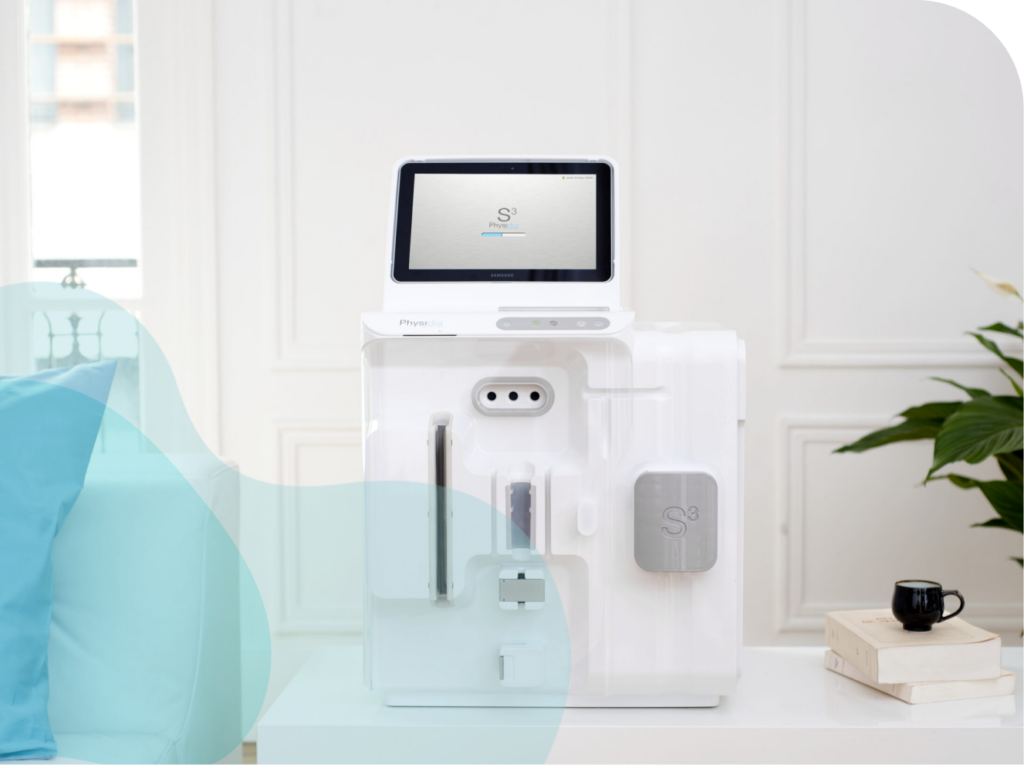
The user-friendly design of the S³ system, with its flexibility, efficiency, and safety features, makes it an excellent option for patients with chronic kidney disease (CKD) and end-stage renal disease (ESRD).
Principle and Functioning of Home Hemodialysis
Hemodialysis is based on the extracorporeal purification of blood through a hemodialyzer (or “artificial kidney”), enabling the removal of uremic toxins and excess fluid.In the context of frequent home hemodialysis, treatment is performed several times per week (4 to 6 sessions), with shorter durations (2 to 3 hours per session)..
his dialysis protocol provides a more physiologic approach, educing the abrupt fluctuations in hemodynamic parameters typically observed with conventional in-center hemodialysis (three 4-hour sessions per week)14.
The therapy is based on:
- A preferred vascular access: an arteriovenous fistula (AVF) or a central venous catheter.
- A dialysis monitor ensuring precise control of blood flow and dialysate parameters.
- Un hémodialyseur : avec S³, celui ci peut être sélectionné en fonction des besoins du patient, optimisant la tolérance et l’épuration des toxines urémiques.

Clinical Benefits
of Frequent Home Hemodialysis
of Frequent Home Hemodialysis
Preservation and Improvement of the Cardiovascular System
Cardiovascular complications are the leading cause of morbidity and mortality in dialysis patients. Frequent home hemodialysis (FHHD) contributes to better hemodynamic stability, particularly through:
A reduction in the ultrafiltration rate, associated with better dry weight control. 3,15
A rapid decrease in systolic and diastolic blood pressure, promoting the reduction or discontinuation of antihypertensive treatments.15
A decrease in the frequency of intradialytic hypotension, improving treatment tolerance.1
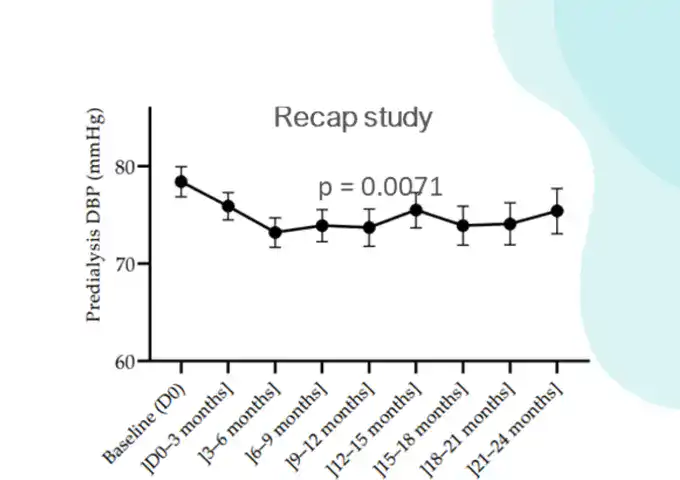
Improvement of Quality of Life
Frequent Home Hemodialysis promotes greater autonomy and a better integration of dialysis sessions into the patient's daily routine. It enables:
- A better post-dialysis recovery, with reduced fatigue12.
- Greater flexibility in scheduling sessions, improving treatment adherence10.
A reduction in professional and social constraints: 25% of patients on Frequent Home HemoDialysis regained employment during the RECAP study3.
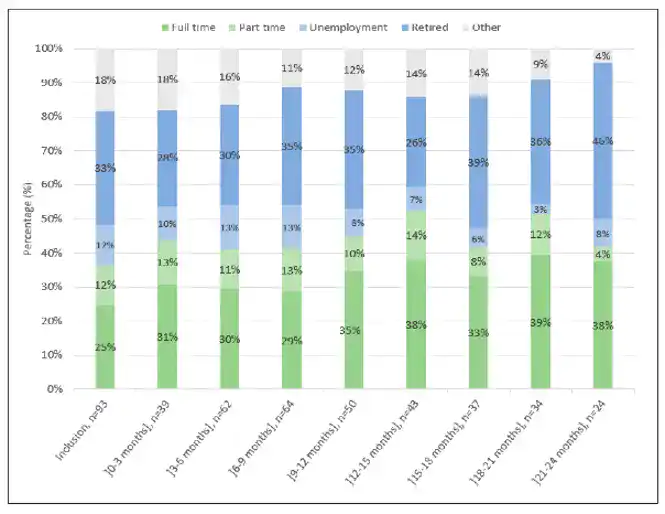
Optimization of nutritional status
More frequent removal of metabolic waste improves the nutritional status of patients:- Better control of phosphatemia, potentially reducing the need for phosphate binders.4
- Significant increase in serum albumin levels, a key indicator of nutritional status.3
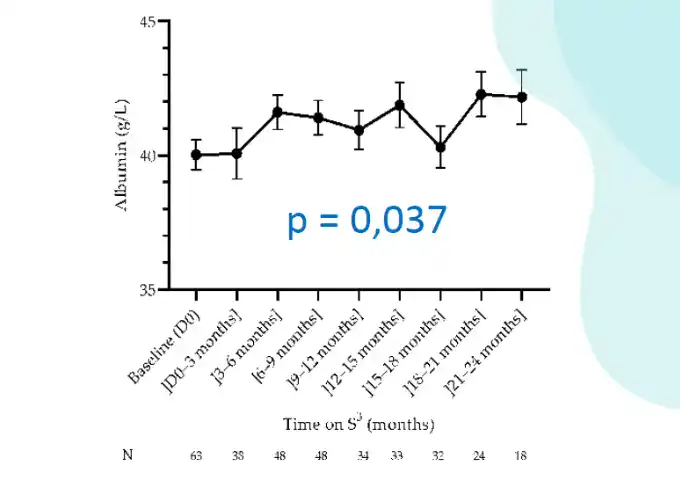
Reduction
of Dietary Restrictions
Unlike conventional hemodialysis, which requires strict control of potassium and fluid intake, FHHD:
- Allows for a more varied diet, improving overall nutritional intake.6
- Reduces constraints related to fluid and electrolyte restrictions5.

Reduction in Risk
of Mortality and Hospitalization
Frequent hemodialysis eliminates the two consecutive days without treatment, a known risk factor for mortality. It enhances hemodynamic stability and improves cardiovascular status. Several studies confirm a reduction in mortality risk.16.
It also leads to a reduction in hospitalization rates, particularly for cardiovascular reasons.17
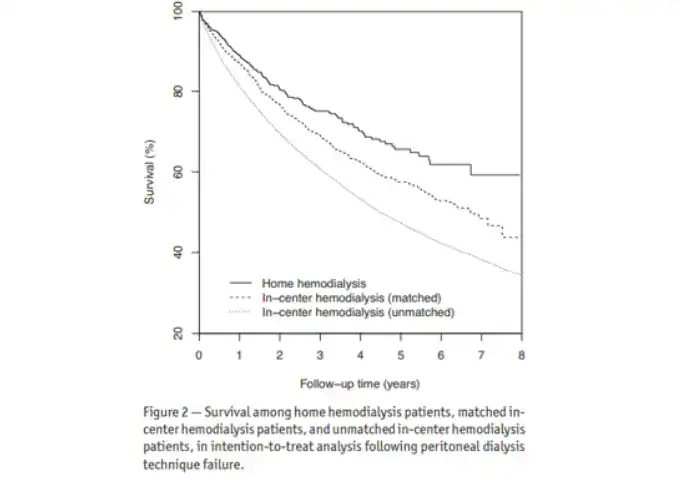
Weinhandl ED, Liu J, Gilbertson DT, et al. Survival in daily home hemodialysis and matched thrice-weekly in-center hemodialysis patients. J Am Soc Nephrol. 2012, 23(5):895-904.

Advantages
Medico-Economic
Frequent Home Hemodialysis also offers significant economic benefits:
- Reduction in transportation and hospitalization costs due to home-based care.18
- Optimization of healthcare resource utilization, with a reduced need for medical staff in healthcare facilities.18
Physidia and the S³ Solution
A Compact Monitor for Home Hemodialysis
Le moniteur S³ de Physidia est spécialement conçu pour l’HDDQ, alliant sécurité, performance et facilité d’utilisation :
- Intuitive interface, facilitating self-management by the patient.1
- Optimized technology for effective purification, notably through the prescriber’s free choice of hemodialyzer and the SeCoHD® (push-pull) modality, which enhances the removal of medium-sized toxins.4
- Real-time monitoring system and safety alarms, ensuring a reliable treatment5: PhysiNums®

Frequent and short home hemodialysis represents a major advancement in the management of patients with chronic kidney disease, offering a better quality of life, enhanced cardiovascular stability, and a reduction in complications associated with conventional dialysis.
Thanks to innovative solutions like the Physidia S³ monitor, this approach is becoming more accessible and secure, paving the way for a new era of personalized and optimized dialysis.
 Global Website
Global Website